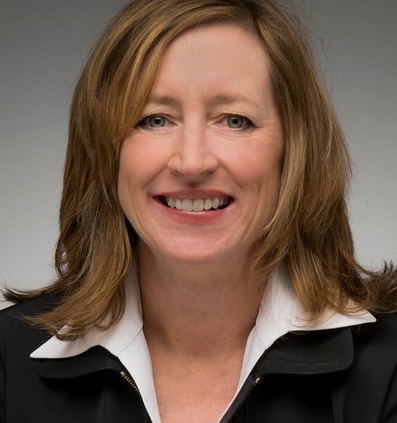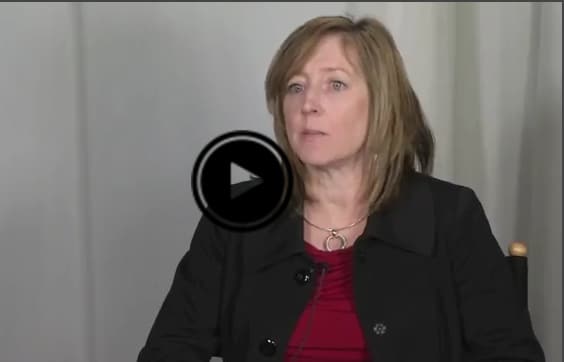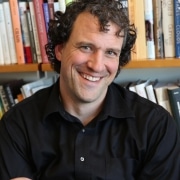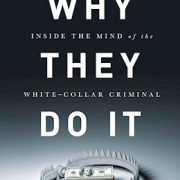Featured Collaborator for December: Ann Tenbrunsel
Interview with Ann Tenbrunsel, the David E. Gallo Professor of Business Ethics at the Mendoza School of Business at the University of Notre Dame, and co-author of Blindspots
What are your main areas of research?
My work has focused on why individuals behave in ways that deviate from their values and are not aware that they are doing so. Within that domain, I have focused on how the situation leads to “ethical fading” in which people do not realize they are in fact presented with an ethical decision. If you don’t realize you are faced with an ethical dilemma, then your ethical values and principles wont be part of the decision process. I have examined individual level factors– temptation, forecasting errors, construal level, moral self-image and power– as well as organizational level factors– business framing, sanctions,perceived retaliation, organizational cultures of justice and respect, formal and informal communications– that may influence unethical behavior.
Can people eliminate their blindspots after becoming aware that they exist?
I have always believed that self reflection and self-awareness is the first step to break down the deleterious effects caused by blindspots. If we don’t realize we have blindspots, then we see ethical “fixes”-training, self-reflection, system fixes-as irrelevant, intended for people other than ourselves. Once we are aware AND accept that we don’t always behave in line with our values, we can design systems to increase that alignment. There is significant research on “nudges” that demonstrates these types of system changes do indeed change behavior.
How does your work on ethical decision making help companies that want to improve themselves as ethical systems?
The reaction I receive from corporations is that our work on blind spots helps individuals and their organizations recognize that “wanting to be good” is not enough, that we can all fall prey to blindspots and behave unethically. Previous training on unethical behavior focused on providing individuals with normative principles and values to help them make ethical decisions. This is important but organizations have remarked that this type of training wasn’t enough. Training on blindspots is seen as effective because it leads to the realization that we are more vulnerable than we think to behaving unethically. It also creates a common framework that allows for discussion and identification of barriers to ethical decision making.
If you could only highlight one paper or research finding (or piece of work that you’ve been involved with) that relates to Ethical Systems which one would it be and why?
It would have to be the book Blind Spots that I co-authored with Max Bazerman as it brings together research, our own and our colleagues, on behavioral ethics and helps draw connections between research and practical applications.
Tell us about one of your current or future projects (perhaps something on an upcoming book or paper?)
I am working on three projects that I am very excited about. In one project, we are examining the organizational factors that influence whistle-blowing intentions versus behaviors in both the U.S. and India. In another project, we are further examining ethical fading [or the process by which a person doesn’t realize that the decision they’re making has ethical implications and therefore doesn’t include ethical criteria in the decision] by examining the dimensions of ethical versus other types of frames and how to decrease fading through manipulating the situation. In yet another project, we are investigating ethical perceptions in the financial services in the US and UK with an attempt to understand the clustering of factors that differentiate individuals both in total as well as across cultures
How did you first get interested in your field?
As a doctoral student 1991-1995 at Northwestern, I explored my interests by writing down questions that I thought needed answers (pages of them, each question of which I was told was an entire career!). I realized that all of the questions shared the commonality of “what makes good people make bad decisions”. Around the same time, Dave Messick, who was hired in 1992 as an endowed ethics chair, asked me to help him plan a conference on ethics. That conference featured some of the top researchers in decision making, psychology and ethics and though each speaker began with the statement, “I don’t really do ethics research”, the possibilities of bringing these fields to the study of ethics were fully illuminated and incredibly exciting. There was no turning back.
If you could only give one piece of advice to companies, what would it be?
Again, I believe companies must first realize that their employees and leaders can fall prey to blindspots, despite their best-intentions and despite their commitment to values. It is then important to identify how ethical fading is encouraged by the organization, through the language they use, the way in which ethics is compartmentalized in certain areas of the organization, the behaviors– real and perceived– that are rewarded in the organization and the unethical behavior of people and groups that employees are motivated “not to see”.
If you could only give one piece of advice to individuals, what would it be?
Engage in self-reflection and identify when you do not live up to your values. Be honest with yourself. Identify why you behaved in a way you probably didn’t anticipate. We have found in our research that understanding the true motivations at the time of the decisions leads people to identify why and when they may behave unethically. Armed with this knowledge, we are then better prepared to change that behavior.
Featured Video
Featured Academic Article
Featured Popular Article
Ethical Breakdowns [written with Max Bazerman], Harvard Business Review, April 2011.










